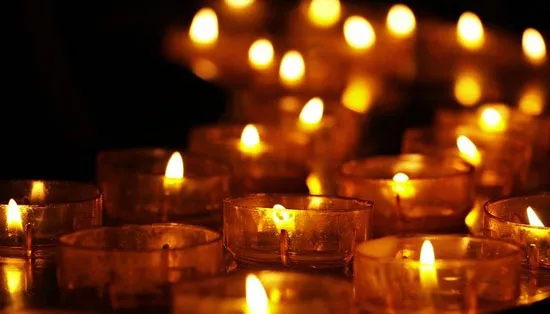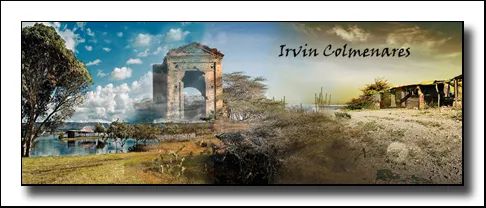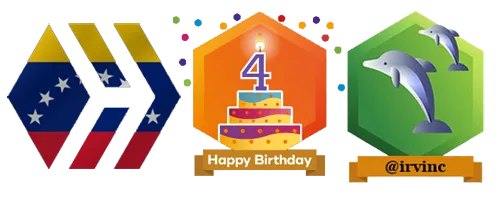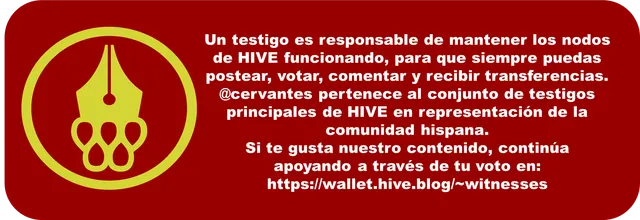
La palabra “Teología” siempre me remite al estudio de las Sagradas Escrituras; esto porque soy católico. En este contexto la Teología se ha convertido en un conocimiento muy especializado, que está a cargo de personas expertas en el tema religioso; la finalidad última de este conocimiento sería la “correcta interpretación” de las Escrituras.
Subyacen varios dogmas en esta manera de entender la Teología. Uno, tiene que ver con la posibilidad de que Dios se pueda comunicar con los hombres para darles a conocer su palabra, esto ocurre en las llamadas “revelaciones”. Son momentos en que Dios inspira a algunos hombres escogidos por él para que puedan transmitir un conjunto de enseñanzas a los demás. Estas enseñanzas son recogidas en el texto bíblico. De acá se desprende otro dogma, que los textos bíblicos son Sagrados porque contienen la palabra de Dios.
Estos dogmas se aceptan mediante un acto de Fe. Los creyentes no los discutimos, sencillamente los aceptamos.
Sin embargo, las verdades contenidas en los textos bíblicos pueden ser discutidas a través del tiempo, buscando actualizarlas y adaptarlas a las nuevas situaciones. Un ejemplo de ello fue el gran movimiento renovador de la Iglesia Católica llamado “La Teología de La Liberación”, una manera de entender la doctrina y las enseñanzas cristianas a la luz de las necesidades de los pueblos oprimidos.

De aquí en adelante todas las opiniones que expresaré pudieran ubicarme perfectamente en el terreno de las herejías. Pero asumo la invitación a pensar propuesta por los amigos de @humanitas.
Me ha parecido muy interesante la pregunta de si existe una Teología Personal.
Sí nos ubicamos en la etimología de la palabra nos damos cuenta que los dos vocablos que la constituyen, “Theos” y “Logos”, nos remitirían a la posibilidad de elaborar un discurso sobre "Dios", esto es, buscar la manera de utilizar nuestra razón para tratar de comprender lo que esto pude significar. Por lo tanto, la posibilidad de interpretar lo relacionado con "Dios" no estaría vedada a ningún ser humano y cada quien pudiera perfectamente elaborar su propia manera de entender este asunto.
Claro está, que esto nos ubicaría en un relativismo extremo en el que cabría cualquier cosa. Por eso las religiones se atribuyen la legítima potestad de ser las que nos puedan dar “la interpretación correcta”.
En mi humilde y limitado entendimiento pienso que la principal razón por la que se producen desencuentros entre los diferentes grupos de creyentes es porque no se asume de modo radical la “omnipotencia” de Dios.
Si aceptamos que Dios es omnipotente pudiéramos pensar que quiso, por una razón misteriosa que solo él conoce, revelarse de diferentes maneras a diferentes grupos de hombres, lo que trajo como resultado la existencia de diferentes religiones y formas de creer.
Pero este concepto de la omnipotencia es realmente difícil de asumir y comprender con las limitadas herramientas de nuestra razón.
Plantearme esa idea de que Dios es omnipotente me da mucha paz. Quizá es la mejor manera que he encontrado para no angustiarme de más en un mundo donde tenemos tantas contradicciones inexplicables.
Los amigos de @humanitas nos dejan en la publicación una invitación a reflexionar sobre una frase tomada de la Biblia: “Yo soy el camino la verdad y la vida, nadie viene al padre sino a través de mí…” (Juan 14. 6-7).

Me llama la atención que el punto de partida sea una sentencia de la religión Católica, no de otra distinta como pudo haber sido un versículo del Corán o algún Sutra budista. Esto ya nos ubica en lo difícil que es tratar de pensar a Dios en abstracto, al margen de alguna religión de las conocidas.
Esa sentencia atribuida a Juan, nos habla de una opción que es exclusiva, fuera de ella no habría posibilidad de conocer a Dios, que en este caso sería el “Padre”, una de las entidades del misterio de la Trinidad, uno de los dogmas principales de la religión Católica.
Para mí la sentencia es muy clara, contiene una invitación a no dispersarme, a no distraerme buscando otras opciones, a confiar que siguiendo ese camino que nos indica el evangelista podré sentir en mi corazón la presencia del Creador. Es una verdad que asumo desde la fe que he puesto en la religión.
Me gusta pensar que “los caminos del Señor son misteriosos” por lo que habrá muchas cosas que no podré comprender de ningún modo. El que las acepte o no siempre será un asunto de fe.
Entiendo que las diferencias que podamos tener en nuestras creencias y maneras de ser, guardan alguna relación con esos “caminos misteriosos”. Está muy por encima de mis capacidades poder entender por qué es así. Hace tiempo que acepté que solo puedo conocer una fracción muy pequeña de la realidad.
Agradezco a los amigos de @humanitas por promover estos temas que nos invitan a la reflexión. Para darle continuidad a la iniciativa invito a la amiga @slwzl.
Gracias por tu tiempo.


The word "Theology" always refers me to the study of the Holy Scriptures; this because I am a Catholic. In this context, Theology has become a very specialized knowledge, which is in charge of people who are experts in the religious subject; the ultimate purpose of this knowledge would be the "correct interpretation" of the Scriptures.
Several dogmas underlie this way of understanding Theology. One has to do with the possibility that God can communicate with men to make his word known to them, this occurs in the so-called "revelations". These are moments in which God inspires some men chosen by him so that they can transmit a set of teachings to others. These teachings are collected in the biblical text. From this follows another dogma, that the biblical texts are sacred because they contain the word of God.
These dogmas are accepted through an act of Faith. Believers do not dispute them, we simply accept them.
However, the truths contained in the biblical texts can be discussed through time, seeking to update them and adapt them to new situations. An example of this was the great renewal movement of the Catholic Church called "Liberation Theology", a way of understanding Christian doctrine and teachings in the light of the needs of oppressed peoples.

From here on, all the opinions I will express could very well place me in the realm of heresies. But I take up the invitation to think proposed by the friends of @humanitas.
I found the question of whether there is a Personal Theology very interesting.
If we place ourselves in the etymology of the word we realize that the two words that constitute it, "Theos" and "Logos", would refer us to the possibility of elaborating a discourse about God, that is, to look for the way to use our reason to try to understand what "God" can mean. Therefore, the possibility of interpreting God would not be forbidden to any human being and everyone could perfectly well elaborate his own way of understanding God.
Of course, this would place us in an extreme relativism in which anything would be possible. That is why religions claim the legitimate right to be the ones that can give us "the correct interpretation".
In my humble and limited understanding, I think that the main reason why there are disagreements between different groups of believers is because the "omnipotence" of God is not radically assumed.
If we accept that God is omnipotent we could think that he wanted, for a mysterious reason that only he knows, to reveal himself in different ways to different groups of men, which resulted in the existence of different religions and ways of believing.
But this concept of omnipotence is really difficult to assume and understand with the limited tools of our reason.
The idea that God is omnipotent gives me a lot of peace. Maybe it's the best way I've found not to be overly distressed in a world where we have so many inexplicable contradictions.
The friends of @humanitas leave us in the publication an invitation to reflect on a phrase taken from the Bible: "I am the way, the truth and the life, no one comes to the father but through me..." (John 14. 6-7).

I am struck by the fact that the starting point is a sentence from the Catholic religion, not from a different one, as it could have been a verse from the Koran or a Buddhist Sutra. This already shows us how difficult it is to try to think of God in the abstract, apart from any known religion.
That sentence attributed to John, speaks to us of an option that is exclusive, outside of it there would be no possibility of knowing God, which in this case would be the "Father", one of the entities of the mystery of the Trinity, one of the main dogmas of the Catholic religion.
For me the sentence is very clear, it contains an invitation not to disperse myself, not to get distracted looking for other options, to trust that by following the path indicated by the evangelist I will be able to feel in my heart the presence of the Creator. It is a truth that I assume from the faith that I have placed in religion.
I like to think that "the ways of the Lord are mysterious" so there will be many things that I will not be able to understand in any way. Whether I accept them or not will always be a matter of faith.
I understand that the differences we may have in our beliefs and ways of being have some relation to those "mysterious ways". It is far beyond my capabilities to understand why this is so. I have long ago accepted that I can only know a very small fraction of reality.
I thank the folks at @humanitas for promoting these thought-provoking topics.
Thank you for your time.
Translated with www.DeepL.com/Translator (free version)







Te invito a apoyar este proyecto como witness y a formar parte de esta gran comunidad uniéndote a su Discord en el siguiente enlace:
Discord de la comunidad Cervantes

You can vote for @ocd-witness, with HiveSigner or on Hive Witnesses.

